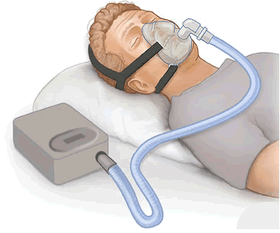By James Simons-
Alternative devices to ventilators used in many hospitals in the UK as a result a shortage of the latter has likely increased the spread of infectious disease by aerosolizing the virus, The Eye Of Media.Com has heard
In medicine, aerolising to refers specifically to the production of airborne particles (e.g. tiny liquid droplets) containing infectious virus or bacteria. The infectious organism is said to be aerosolized.
Ventilators are used in most hospitals treating Covid-19 patients , but shortages have often meant using alternative equipment to achieve the same goal.
Those alternatives come in the form of Face masks generally used on CPAPs or BiPAPs enables the escape of air, pumping the virus into the surroundings and potentially infecting other patients, doctors who insist on anonymity have said. This means hospitals using this alternative may unintentionally be spreading deadly viruses which are harmful to patients.
The claim that infections are worsened by CPAP’s suggest they could play a role in the increased Covid- 19 deaths in hospitals where they are used.
And with the exceedingly high numbers of Covid-19 deaths worldwide, it begs the question whether alternative factors like Cpap’s could be contributing to the high death toll arising from the deadly virus.
We are still examining the claim by speaking with a handful of medical experts about its validity. Incidentally, not very many of those we have spoken to know enough about it.
However, a few doctors have confirmed that many patients who have gone to hospital for other underlying illnesses have died very quickly of Covid-19. The deadly virus is believed to spread quicker in hospitals
Ventilators themselves have been said to be a potentially dangerous tool, capable of accelerating the deaths of many Covid-19 victims if pressure is carelessly applied on the lungs. Those claims are unverified because although over 50% of Covid-19 victims on ventilators die, close to half survive. This makes the actual cause of death down to the extent of their illness. Cpaps that spreads infections are alarming.
A London doctor anonymously told The Eye Of Media.Com:
”The American Society of Anesthesiologists issued guidance on Feb. 23 discouraging CPAP use in COVID-19 patients, drawing their experience from the SARS epidemic in 2003. Research studies conducted showed that these devices can pump viruses into the air, and have a high likelihood of increasing the spread of a contagious disease. Yet, the use of CPAP continues to be widespread in UK hospitals treating patients with the coronavirus. Those studies casts doubt on the safety of CPAP use in Covid-19 patients”.
Set Back
The set back of this procedure is that such alternative devices can possibly increase the spread of infectious disease by aerosolizing the virus, whether used in the hospital or at home. This method is suspected of contributing to the spread of COVID-19 in many UK hospitals and hospitals in the U.S First responders called to the Life Care Center of Kirkland starting Feb. 24 initially used continuous positive airway pressure machines, often known as CPAPs, to treat residents before it was known the patients were infected with the COVID-19 virus.
King County public health officials advised Redmond Fire and other first responders in the region not to use those machines for patients suspected of having COVID-19 illness. Those machines with specialised filters, which can reduce the amount of virus released. Redmond Fire has now discontinued the use of CPAPs for COVID-19 patients.
“It’s truly out of an abundance of caution for our people and for the community that we put it on the back shelf, unless we can confirm it was the best use for our patient,” Whitney said.
The American Society of Anesthesiologists issued guidance on Feb. 23 discouraging CPAP use in COVID-19 patients — advice largely informed by experience with the SARS epidemic in 2003. Studies dating to 2003 suggest such devices can pump viruses into the air, potentially increasing the spread of a contagious disease.
The Nhs was contacted for comment




